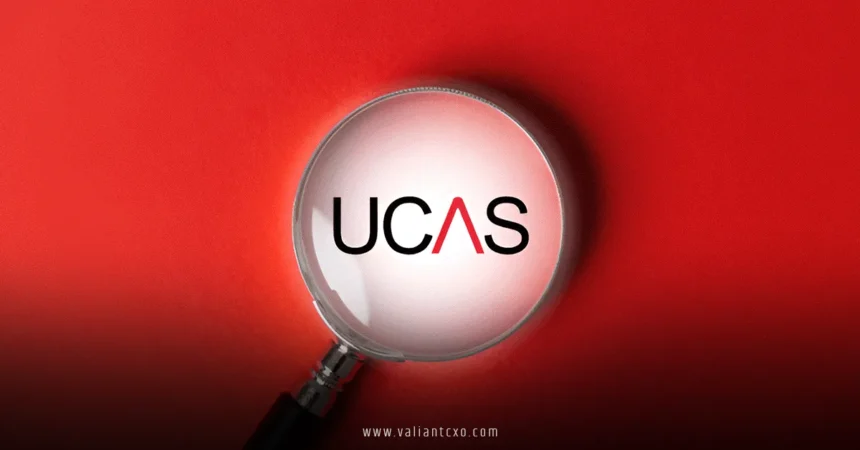UCAS is your unbeatable gateway to higher education in the UK, a centralized platform that transforms the daunting university application process into a manageable journey for millions of students. Whether you’re a UK resident dreaming of studying at Oxford or an international student aiming for a degree in London, UCAS is your launchpad. But what makes UCAS so powerful, and how can you harness its potential to secure a spot at your dream university without falling into common traps? This guide dives deep into everything you need to know about UCAS, from its origins to actionable strategies for crafting an application that stands out. Think of UCAS as the bridge between your ambitions and your future campus—let’s cross it with confidence and avoid the pitfalls!
What Is UCAS and Why Is It a Game-Changer?
Understanding the Power of UCAS
UCAS, the Universities and Colleges Admissions Service, is a UK-based charity that streamlines applications to higher education institutions. Since its inception in 1993, UCAS has empowered students by allowing them to apply to multiple universities with one form. Imagine the chaos of juggling five separate applications, each with unique demands—UCAS eliminates that nightmare. It’s like a one-stop hub for your university aspirations, managing everything from course selection to result tracking with ease. For a detailed overview, check out UCAS’s official website.
Why UCAS Is Non-Negotiable for Applicants
Why is UCAS so critical? It’s the primary pathway for applying to most UK universities, processing over 700,000 applications yearly. Whether you’re chasing a bachelor’s degree or a niche course at a conservatoire, UCAS ensures your application lands in the right hands. Tools like the UCAS Hub make tracking your progress a breeze, saving you from the stress of scattered deadlines. Without UCAS, you’d be lost in a maze of forms and dates—a frustrating ordeal you don’t want to face.
How Does the UCAS Application Process Work?
Step-by-Step Breakdown of the UCAS Journey
The UCAS application process is straightforward but requires precision. First, you register on the UCAS Hub and answer questions about your study plans. Then, you complete sections on personal details, education history, employment, and your personal statement. You can apply to up to five courses, which is like casting a wide net to catch your ideal university. Once you submit your application and pay the £28.50 fee (as of 2025), UCAS forwards it to your chosen institutions. For a step-by-step guide, visit UCAS’s application page.
Key Deadlines to Watch
Timing is everything with UCAS. For courses starting in September 2026, applications open in May 2025, with key deadlines in October for Oxford, Cambridge, and competitive courses like medicine. Regular applications close in January 2026, but early submissions give you an edge. Missing a deadline is like missing the last train home—you’re stuck waiting for the next chance, like UCAS Clearing. Don’t let procrastination derail your plans!
Crafting a Winning UCAS Personal Statement
Why Your Personal Statement Is a Game-Changer
Your UCAS personal statement is your moment to shine. It’s a 4,000-character essay where you convince universities you’re the perfect fit. Think of it as your elevator pitch—short, compelling, and packed with personality. A strong personal statement can make or break your application, especially for competitive courses. In 2026, UCAS is introducing a new format with three structured questions, making it easier to focus your answers.
Tips for Writing a Standout UCAS Personal Statement
How do you make your UCAS personal statement pop? Show your passion for your subject with vivid examples. If you’re applying for biology, mention that summer you volunteered at a wildlife sanctuary. Highlight skills like critical thinking or teamwork with specific stories. Avoid clichés like “I’ve always wanted to be a doctor”—tell a unique story that shows your journey. Authenticity is key; admissions tutors can spot inauthenticity instantly. Proofread obsessively—your future depends on it.
Structuring Your Statement for Maximum Impact
Structure is crucial in a UCAS personal statement. Dedicate 80% to academic interests and achievements, like relevant coursework or projects. The remaining 20% can cover extracurriculars, but only if they tie to your course. Playing in a band shows creativity for a music degree but may not impress for engineering. Start with a hook—an anecdote or bold statement—then flow into qualifications and goals. End with why you’re thrilled about university life.
Avoiding Common Pitfalls
Don’t cram everything into your UCAS personal statement—focus on quality over quantity. Avoid exaggerating achievements; tutors may quiz you at interviews. Steer clear of generic templates—your statement should scream you. If applying to multiple universities, ensure your statement aligns with their priorities. For example, Oxford values academic passion over extracurriculars.
Choosing the Right Courses Through UCAS
Navigating the UCAS Course Search Tool
With thousands of courses, picking the right one on UCAS feels like finding a needle in a haystack. The UCAS course search tool lets you filter by subject, location, and entry requirements. Want to study computer science in Scotland? Narrow it down to match your grades and interests. Check course codes to avoid mix-ups when applying.
Balancing Ambition and Realism
How do you pick your five UCAS course options? Mix ambitious “reach” universities, like Imperial College, with “safety” options where your grades exceed requirements. Research course modules and career prospects to ensure alignment with your goals. It’s like curating a playlist—blend bold hits with reliable classics for a winning mix.
Understanding UCAS Tariff Points and Entry Requirements
What Are UCAS Tariff Points?
UCAS tariff points standardize qualifications for university entry. Your A-levels, BTECs, or other credentials convert into points—think of it as a currency universities accept. An A* at A-level equals 56 points; a B is 32. Most universities list requirements in grades (e.g., AAB) or points (e.g., 120). Use the UCAS tariff calculator to check your score.
Meeting Entry Requirements
Every UCAS course has specific requirements, from grades to subject prerequisites. Medicine may demand chemistry and biology, while history might need an essay-based subject. International students often require an English Language Test (ELT) like IELTS. Always verify requirements on university websites—UCAS listings are just a starting point. Falling short is like running a marathon in flip-flops—not impossible, but tough.
The Role of References in Your UCAS Application
Why References Matter
A UCAS reference is a letter from a teacher or mentor vouching for your academic ability and character. It’s like a wingman hyping you up to admissions teams. Your referee should know you well and highlight strengths, like your problem-solving skills or subject dedication. For 2025 applicants, references are submitted separately by your school via UCAS.
How to Secure a Strong Reference
Ask for a reference early—don’t surprise your teacher last minute. Choose someone familiar with your academic growth, like a subject teacher. Provide a brag sheet listing achievements, like leading a debate team. This helps them craft a compelling reference. Independent applicants can use a former employer or mentor, but ensure they understand UCAS.
UCAS Clearing: Your Second Chance
What Is UCAS Clearing?
Missed your grades? UCAS Clearing is your lifeline, matching students with available university places after results day. Think of it as a last-minute sale—universities offer spots on unfilled courses. In 2024, over 70,000 students found places through Clearing, proving it’s a real opportunity.
How to Navigate Clearing
If eligible, you’ll see a Clearing option in the UCAS Hub. Search available courses, contact universities directly, and be ready to pitch yourself. Speed matters—popular courses fill fast. Have your grades, personal statement, and goals ready. It’s like speed dating for university places—be confident, quick, and don’t settle for less.
UCAS for International Students
Applying as an International Student
UCAS isn’t just for UK students; it’s a global platform. International applicants follow the same process but may need extra steps, like an ELT or comparability statements for non-UK qualifications. The UCAS fee is the same, but budget for visa costs and higher tuition. It’s like planning an overseas adventure—exciting but needs extra prep.
Tips for International Applicants
Start early to handle visa processing or translations. Research universities with strong international support, like those offering pre-sessional English courses. Use a UCAS buzzword to connect with your school or agent. Highlight your global perspective—your background can make your personal statement shine.
Common Mistakes to Avoid in Your UCAS Application
Submitting Incomplete Information
A major UCAS mistake is submitting incomplete applications. Missing grades, a rushed personal statement, or wrong course codes can lead to rejection. Double-check every section before submitting. It’s like sending a job application—details show you’re serious.
Ignoring Deadlines
Missed UCAS deadlines can derail your plans. Mark key dates, like October 15 for Oxbridge or January 31 for most courses. Set reminders a week early to avoid stress. Procrastination is the enemy of a successful UCAS application.
How UCAS Supports Students Beyond Applications
UCAS Hub and Resources
The UCAS Hub is more than an application portal; it’s a treasure trove of resources. From career quizzes to budgeting tips, UCAS helps you plan your future. The website offers guides on student finance, accommodation, and mental health, easing your university transition.
UCAS Events and Fairs
Ever attended a UCAS exhibition? These events connect you with university reps to ask questions and explore courses in person or online. It’s like an open day on steroids—perfect for narrowing choices. Check the UCAS website for 2025 events.
Preparing for UCAS Results Day
What Happens on Results Day?
Results day is the climax of your UCAS journey. You’ll learn via the UCAS Hub if you’ve met your offer conditions. If you secure a place, congrats! If not, UCAS Clearing or Adjustment can help. It’s an emotional rollercoaster, so have a plan B ready.
Coping with Unexpected Outcomes
Didn’t get the grades? Don’t panic. UCAS offers Clearing or exam retakes. Contact universities to discuss options—some may still accept you. It’s like missing a shot in basketball; take a deep breath and go for the rebound.
Conclusion: Your UCAS Journey Starts Here
Navigating UCAS is like embarking on a grand adventure—one that leads to your dream university. From crafting a compelling personal statement to hitting deadlines, every step counts. UCAS simplifies the process, but success hinges on your preparation and passion. Use the UCAS Hub, research courses, and let your unique story shine. Ready to conquer the application process? Your future awaits, and UCAS is your ticket to ride. Start today, and you’ll be closer to that acceptance letter!
FAQs About UCAS
What is UCAS and who needs to use it?
UCAS is the Universities and Colleges Admissions Service, a platform for applying to UK universities. It’s essential for anyone seeking an undergraduate degree in the UK, including international students. Learn more about UCAS
How many courses can I apply to through UCAS?
You can apply to up to five courses on a single UCAS application, allowing you to explore multiple universities or programs.
What’s the cost of a UCAS application in 2025?
As of 2025, the UCAS application fee is £28.50 for up to five course choices, covering processing and support services. Check UCAS fees
Can I change my UCAS personal statement after submission?
Once submitted, you can’t edit your UCAS personal statement. Draft it carefully and review it multiple times before sending.
What happens if I don’t get an offer through UCAS?
If you don’t receive offers, UCAS Clearing lets you apply for available courses after results day, giving you a second chance. Explore UCAS Clearing
For More:valiantcxo.com


